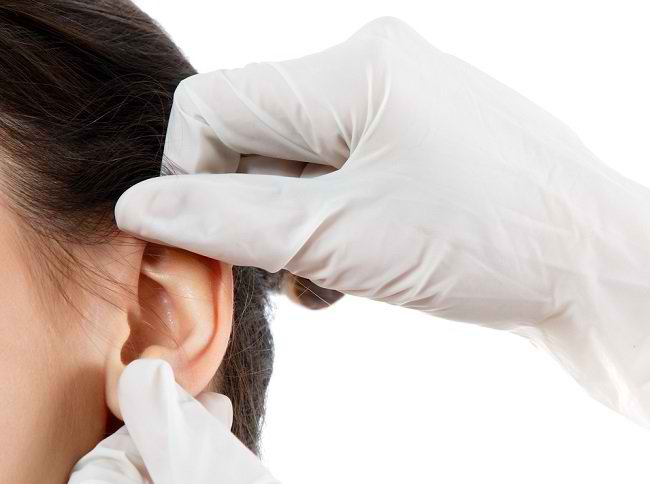Dexlansoprazole is a drug to treat complaints of gastric acid disease or GERD (GERD).gastroesophageal reflux disease) and helps the recovery of inflammation of the esophagus due to increased stomach acid (erosive esophagitis).
Dexlansoprazole works by inhibiting the work of enzymes in the stomach lining, so it can reduce the production and secretion of stomach acid. That way complaints, such as stomach pain, heartburn, or nausea, can subside.

Dexlansoprazole is also able to prevent more serious damage to the stomach and esophagus, due to irritation from stomach acid.
Trademarks of dexlansoprazole: Dexilant
What is Dexlansoprazole
| group | Prescription drugs |
| Category | Proton pump inhibitor |
| Benefit | Relieves symptoms of acid reflux disease (GERD) |
| Consumed by | Adults and children 12 years old |
| Dexlansoprazole for pregnant and lactating women | Category B: Animal studies have not shown a risk to the fetus, but there are no controlled studies in pregnant women. Dexlansoprazole is absorbed into breast milk. If you are breastfeeding, do not use this medicine without consulting your doctor first. |
| Drug form | Delay release capsules |
Precautions Before Taking Dexlansoprazole
Dexlansoprazole capsules should only be taken as prescribed by a doctor. There are several things to consider before taking this drug, including:
- Do not take dexlansoprazole if you are allergic to this drug or to other proton pump inhibitor class drugs, such as lansoprazole or omeprazole. Tell your doctor about any allergies you have.
- Tell your doctor if you are taking rilpivirine. Dexlansoprazole should not be taken together with these drugs.
- Tell your doctor if you have diarrhea, kidney disease, osteoporosis, osteopenia, liver disease, seizures, hypomagnesemia, vitamin B12 deficiency, or an autoimmune disease, such as lupus.
- Tell your doctor if you are taking certain medications, supplements, or herbal products.
- Tell your doctor if you are pregnant, breastfeeding, or planning a pregnancy.
- See your doctor immediately if you have an allergic drug reaction, serious side effect, or overdose after taking dexlansoprazole.
Dosage and Rules for Use of Dexlansoprazole
The dose of dexlansoprazole will be determined based on the age of the patient and the intended use. The following is the dosage division of dexlansoprazole capsules:
Condition: GERD (gastro-esophageal reflux disease) or acid reflux disease
- Adults and children 12 years of age: The dose is 30 mg, once a day, taken for 4 weeks.
Condition: Erosive esophagitis
- Mature: The dose is 60 mg per day, taken for 8 weeks or more. The maintenance dose is 30 mg per day, taken for 6 months.
- Children 12 years old: The dose is 60 mg per day, taken for 8 weeks or more. The maintenance dose is 30 mg per day, taken for 4 months.
How to Take Dexlansoprazole Correctly
Always follow your doctor's instructions and read the instructions on the dexlansoprazole package before taking it. Do not increase or decrease the dose, and do not use the drug for longer than the time recommended by your doctor.
Dexlansoprazole capsules can be taken with or without food. Swallow the capsule whole with a glass of water. Do not chew, open, or crush the capsules.
If it is difficult to swallow the capsule whole, open the capsule and pour the medicine into a spoon and mix it with a little water, then swallow it without chewing.
To get the best results, keep taking dexlansoprazole capsules as recommended by your doctor even if your condition has improved. Do not stop treatment without consulting your doctor first.
Take dexlansoprazole at the same time every day for maximum benefit. If you forget to take this medicine, it is advisable to take it immediately if the gap with the next consumption schedule is not too close. If it is close, ignore it and do not double the dose.
Store dexlansoprazole capsules in a closed container in a cool place. Protect this medication from exposure to direct sunlight. Keep this medicine out of reach of children.
Dexlansoprazole interactions with other drugs
The use of dexlansoprazole with other drugs can cause drug interactions, such as:
- Decreased levels of rilprivine, atazanavir, or nelfinavir, which may decrease their effectiveness in HIV treatment
- Increased levels of methotrexate, tacrolimus, or saquinavir in the blood, which can increase the risk of side effects
- Decreased absorption of ampicillin, ketoconazole, itraconazole, erlotinib, nilotinib, or mycophenolate mofetil
Side Effects and Dangers of Dexlansoprazole
Some side effects that may appear after taking dexlansoprazole are nausea, vomiting, bloating, or diarrhea. Check with a doctor if the complaint does not subside or is getting worse.
See your doctor right away if you have an allergic reaction to a drug or a more serious side effect, such as:
- Low levels of magnesium in the blood (hypomagnesemia), which can be characterized by symptoms such as a fast, slow, or irregular heartbeat, seizures, or muscle stiffness
- Low levels of vitamin B12 (vitamin B12 deficiency), which can be characterized by symptoms such as weakness, weakness, tingling, or burning sensations in the hands or feet, canker sores on the tongue or mouth
- Recurrence of symptoms of autoimmune disease, which can be characterized by symptoms such as a red rash on the cheeks and face, skin that is more sensitive to sunlight, or joint pain
- Bacterial infection Clostridium difficile, which can be characterized by persistent diarrhea, severe stomach cramps, or bloody or slimy stools









